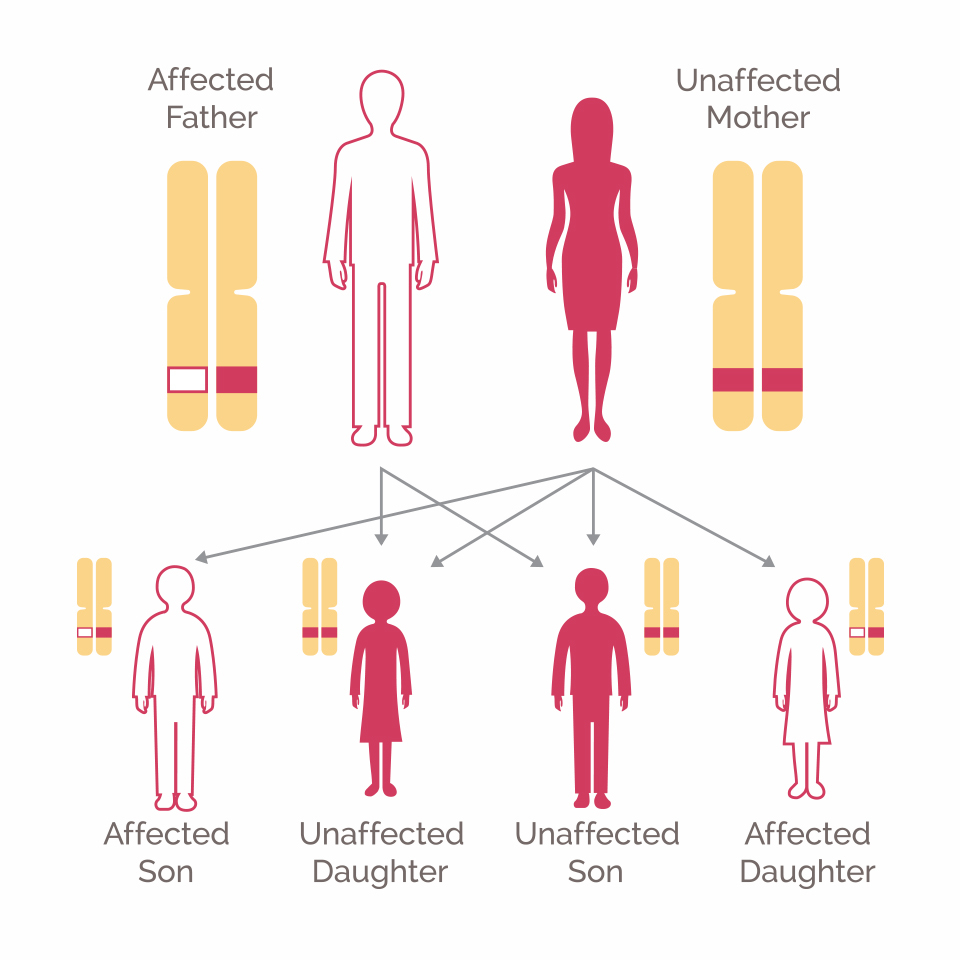Genetic Testing
Three of the most well-known genes that can mutate and raise the risk of breast and/or ovarian cancer are BRCA1, BRCA2, and PALB2. Women who inherit a mutation, or abnormal change, in any of these genes — from their mothers or their fathers — have a much higher-than-average risk of developing breast cancer and/or ovarian cancer. (Abnormal PALB2 genes are suspected to raise the risk of ovarian cancer, but larger studies need to confirm that risk.) Men with these mutations have an increased risk of breast cancer, especially if the BRCA2 gene is affected, and possibly of prostate cancer. Many inherited cases of breast cancer have been associated with mutations in these three genes.
The function of the BRCA and PALB2 genes is to keep breast cells growing normally and prevent any cancer cell growth. But when these genes contain the mutations that are passed from generation to generation, they do not function normally and breast cancer risk increases. Abnormal BRCA1, BRCA2, and PALB2 genes may account for up to 10% of all breast cancers, or 1 out of every 10 cases.
Most people who develop breast cancer have no family history of the disease. However, when a strong family history of breast and/or ovarian cancer is present, there may be reason to believe that a person has inherited an abnormal gene linked to higher breast cancer risk. Some people choose to undergo genetic testing to find out. A genetic test involves giving a blood or saliva sample that can be analyzed to pick up any abnormalities in these genes.

How To Get BRCA Genetic Testing
Genetic counseling is recommended for those who are interested in being tested for breast cancer gene mutations. You can talk to a doctor about getting a referral to a genetic counselor, who can help determine whether genetic testing would make sense based on family history and risk factors. Since many genetic tests only look for one specific gene mutation, the counselor can often help determine which mutations to test for.
The genetic test itself simply involves taking a small sample of blood or saliva, which is sent to a lab for analysis. Results can take several weeks or months.
Genetic testing results are not always clear-cut:
A test result can be positive, meaning that the patient does carry the gene mutation.
A negative test result indicates that they do not have that particular gene mutation. It does not, however, rule out the possibility of having mutations in other genes. It also does not rule out the possibility of developing breast cancer. Most breast cancer cases are not hereditary, so everyone should still have an early detection plan.
After receiving genetic test results, a patient should meet again with a genetic counselor to clarify what the results mean. Whether the results are positive, negative, or ambiguous can impact many life decisions, and a counselor can help navigate those decisions

